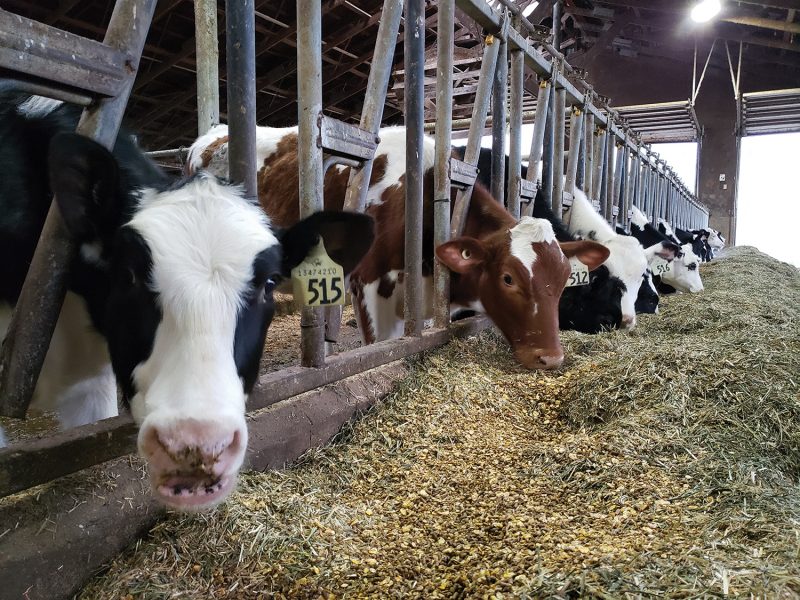BURNABY – Producer income loomed large on the minds of dairy producers as the province’s three dairy organizations gathered online for their annual general meetings November 22.
During the open discussion that followed the meetings, held online to facilitate attendance from across the province, the leading question asked was what was being done to improve producer income.
BC Dairy Association chair Holger Schwichtenberg said there was no easy answer to the problem, which isn’t unique to BC.
“It is more of a national question than a BCDA or BC Milk [Marketing Board] one,” he said. “We are looking at ways, but that is not solved overnight.”
Rising production costs and federally mandated price hikes that have failed to keep pace with them have pushed producer margins below 4% this year.
Dairy prices, set by the Canadian Dairy Commission, rose 8.5% last February and 2.5% in September, with a further 2.2% increase set for this February. The result has added more than a dollar to the retail cost of staples like a 4L jug of milk and a pound of butter, but it hasn’t been enough to offset rising costs for feed, fuel and other inputs.
But total input costs have increased by an average of 19%, according to information presented by the Western Dairy Council at the BC Dairy Industry Conference in late November. Key drivers include fuel, up 71%, and feed, up 39%.
According to BC Milk, transportation costs this year are set to rise 12% thanks to higher fuel costs, adding nearly $4 million to producer expenses. This is a significant shift from the additional $1.2 million last year, which took a bite out of the $15 million in revenue added by higher milk prices.
Two key initiatives that could help improve BC producer incomes include greater dairy processing capacity in Western Canada.
BC Dairy executive director Jeremy Dunn reports that a feasibility study is underway for a co-pack facility in the region that will provide space for small runs of products by multiple processors. The feasibility study, undertaken by KPMG in partnership with the BC Ministry of Agriculture and Food, is expected early this year.
Dairy Innovation West, a new processing plant planned for central Alberta, will concentrate raw milk to reduce the transportation costs producers pay. Undertaken by the Western Milk Pool, the plant is jointly owned by the provincial dairy organizations. BC Dairy holds a 35% interest in the project, and contributed $1.1 million to the project over the past year.
Despite the challenges, producers continue to work on producing top-quality milk.
BC Dairy’s annual milk quality award this year went to Dave and Melinda Matlak of Deroche, who maintained a high level of cleanliness over the course of the year. The farm’s somatic cell count (SCC) averaged 41,000 per ml while plate counts of anaerobic bacteria stood at 3,500 per ml.
“We like to be meticulous, and we’re concerned about what our numbers are, but those are truly astounding numbers over a whole year,” Schwichtenberg said in announcing the award. “Some of us may get there on occasion but it’s maintaining those numbers and not having the odd hiccup. … They should be commended for that.”
According to the latest Agriculture Canada numbers, the average SCC for BC over the course of the last dairy year was 152,896 while plate counts averaged 24,707.
The meetings updated producers on several in-house initiatives, including a new three-year strategic plan for BC Dairy.
BC Dairy members also voted on an overhaul of association bylaws as part of a regular review. The changes include provisions related to the new WMP governance structure, allowing the executive to act on members’ behalf at the regional level. The bylaws were revised to implement gender-neutral language throughout.


 Ministry hires deputy ministers
Ministry hires deputy ministers